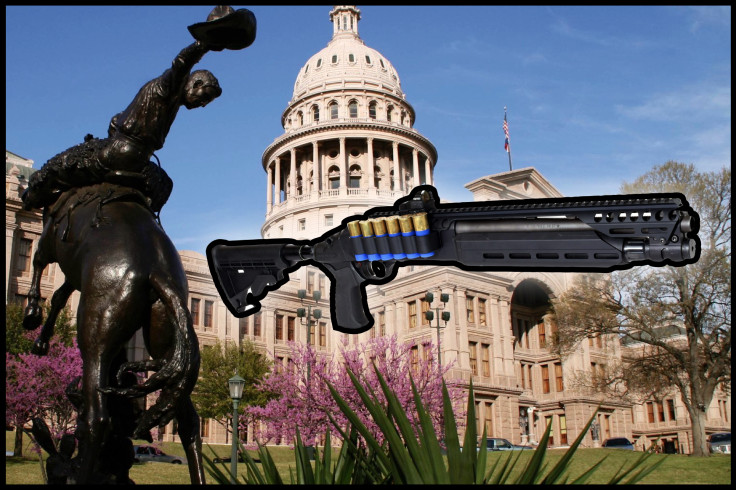
Texas lawmakers passed Senate Bill 1596 on Tuesday morning, a measure that removes short-barrel firearms — commonly known as sawed-off shotguns — from the state's prohibited weapons list.
Republican Rep. Richard Hayes of Hickory Creek dismissed any potential threat posed by the gun, Fox 7 reported. "We just don't have that kind of gangland-style shooting these days with short-barrel firearms," Hayes said during floor discussions.
Opponents of the bill were quick to cite the 2018 shooting at Santa Fe High School in Santa Fe, Texas. A 17-year-old student killed eight students, two teachers, and injured 13 others, allegedly with a short-barrel shotgun that belonged to his father.
"We have shootings that vastly exceed what we once had ... we've never had a greater epidemic of constant shootings than we have today," said Democratic Rep. John Bryant told Hayes.
Under current federal law, short-barrel rifles and shotguns—defined as having barrels shorter than 16 inches and 18 inches respectively—are legal if registered with a background check and a $200 fee. SB 1596 would align state law with these federal regulations. The bill now heads to Gov. Greg Abbott, who will decide whether to sign it into law.
"Think about the irony. You can have a handgun, you can have a long gun, but you can't have a long gun with a short barrel," Hayes said, questioning the logic of the specific ban on short barrel guns, which are easier to conceal and more difficult to control than longer-barreled shotguns.
"I'm not thinking about the irony," Bryant retorted. "I'm thinking about all those people who got shot."
"That was a legally owned gun. If it's a legally owned gun and someone commits a heinous offense," Hayes put his hands up and shrugged, adding, "What can you do?"
In the same session, Texas House members passed legislation requiring public school classrooms display the Ten Commandments. Meanwhile, the Texas Senate moved to ban cannabis with a bill lawmakers say will protect children.
With Abbott's signature, each of the three measures will take effect in September.
© 2025 Latin Times. All rights reserved. Do not reproduce without permission.





